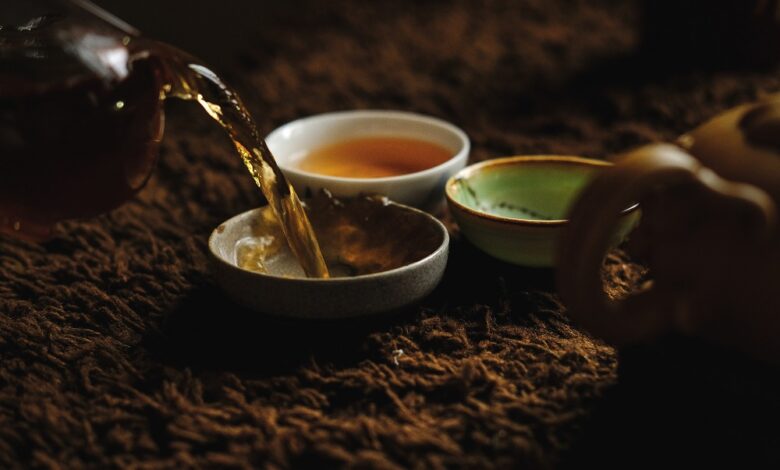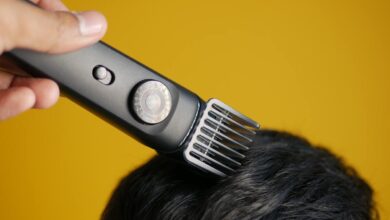7 Best Teas to Relieve Stress and Headaches:

Teas Relieve Stress:
Headaches are not just uncomfortable, they are disabling. They ruin your entire day. Did you know that over 50% of adults suffer from headaches? Tension headaches, cluster headaches, migraines, caffeine headaches, exertion headaches, hormone headaches, hypertension headaches, rebound headaches, or traumatic headaches can occur. Migraines are characterized by severe pain, while tension headaches are characterized by mild pain.
How do you deal with headaches? Do you take painkillers? If you’ve ever had a headache, you know it leaves you feeling miserable. When the medicine wears off, the headache returns. Too often, painkillers aren’t the answer to headaches. If you are tired of taking over-the-counter medications, you may find that tea is the solution you are looking for.
It has healing properties
They have been used in medicine for thousands of years. There are a number of medicinal properties in the herbs in the tea, making it a natural remedy for headaches. According to a 2016 study, tea has a great ability to relieve headaches caused by tension. In addition, the caffeine found in tea can act as a painkiller, instantly relieve you of aches and pains.
Teas are available in many varieties green tea, white tea, black tea, oolong tea, herbal tea, etc. Some of the coffees may contain caffeine, which may aid in migraine relief. Others are decaffeinated. We will discuss 7 different types of tea that relieve headaches in this article.
Green tea
Green Tea has many health benefits. Due to its compounds, it is widely recognized in the weight loss industry as a fat-burning supplement.

Its highly concentrated antioxidant content makes green tea popular as a detox tea. In addition to treating migraine symptoms, it also boosts your overall health.
Feverfew tea
A traditional remedy for treating aches and pains uses feverfew leaves. Most people know that feverfew tea is great for treating migraine headaches. According to a review, feverfew can help relieve headaches, stomachaches, and arthritis pain.
Fifty-two studies found feverfew effective in treating migraines and preventing them. Additionally, the study demonstrated that the tea inhibits the release of serotonin and a number of other compounds that trigger headaches.
Ginger tea
Natural ingredients such as ginger have been used for centuries in order to relieve nausea and headaches. With its anti-inflammatory properties, it helps to reduce inflammation-caused pain, as well as decrease tension, which can alleviate headaches that feel throbbing and pounding. A pain killer over the counter works the same way. Ginger is also high in antioxidants that fight free radicals and eliminate toxins that cause recurrent headaches.
A ginger root is used for ginger tea, which is actually not tea. Ginger can be added to the water to make tea, but you will have to simmer it for a long time. You can also buy tea directly from the market if you do not have that much time. If you choose one, make sure that it has natural ginger and not artificial flavoring.
Peppermint tea
In addition to preventing nausea and aiding digestion, peppermint can also be used to treat headaches and migraines. Additionally, peppermint can soothe nausea. Researchers in Germany found that peppermint oil can treat tension headaches as well as paracetamol (a pain reliever widely prescribed for headaches). Researchers found that peppermint’s active ingredients, including phenols and flavonoids, can help decrease inflammation and soothe headache pain.
The tea can also be brewed with peppermint leaves. To ensure you’re buying peppermint tea made from real peppermint, not artificial flavoring, make sure it contains peppermint leaves. Drinking peppermint tea can also help reduce pain and discomfort without any side effects, so it will certainly help you.
Clove tea
Cloves offer the best pain relief. We can use cloves for throbbing headaches because of their cooling and pain-relieving properties. They are also effective for migraines. Even in oral procedures, cloves work as well as benzocaine.
Additionally, cloves are excellent for decreasing inflammation and boosting circulation. Therefore, clove tea may interact with some blood thinners. Consult your physician before consuming clove tea.
The cloves can be steeped in water for a few minutes to make clove tea. They can also be added to other teas and brewed.
Chamomile tea
For its calming and soothing properties, chamomile tea is often regarded as a powerhouse. We should rest and sleep well to reduce pain during migraines and headaches, don’t you think? The benefits of chamomile tea include a longer period of deep sleep and better sleep quality. It reduces inflammation, as well as increases relaxation due to its natural sedative effect.
People with ragweed allergies may have problems with Chamomile tea since it is made from Chamomile flowers. As a result, it is advisable to try it before using it as a headache remedy.
Willow Bark tea
Have you heard that willow bark is considered a natural Aspirin to treat headaches? Willow bark is effective at treating chronic headaches and migraines. Willow Bark helps to lower blood pressure in the small veins and capillaries in the brain, which results in reducing pain and symptoms associated with headaches.
There are many caffeinated teas on the market
If you want fast relief from a headache, caffeine can help. The caffeine in caffeine makes pain killers 40% more effective, which is why it is used in so many pain relievers. Did you know that caffeine can sometimes stop the pain in its tracks?
The substance reduces inflammation, which leads to relief. Caffeine helps even very rare conditions like hypnic headaches. It can also give common headache remedies an extra boost. Consequently, if you combine caffeine with over-the-counter pain relievers such as aspirin, etc.. it works faster, better, and keeps the pain away longer. Teas such as black, green, oolong, and white teas all contain caffeine.
Thus, if you are concerned that caffeine may worsen your headache, choose an herbal tea from the list instead. Due to the fact that they’re naturally decaffeinated, they can help you relieve headaches without making you feel anything new like nausea, upset stomach, etc… that caffeine can cause.
You should also avoid all headache triggers like alcohol, stress, etc. Migraine can also be triggered by bright lighting and strong odors.






